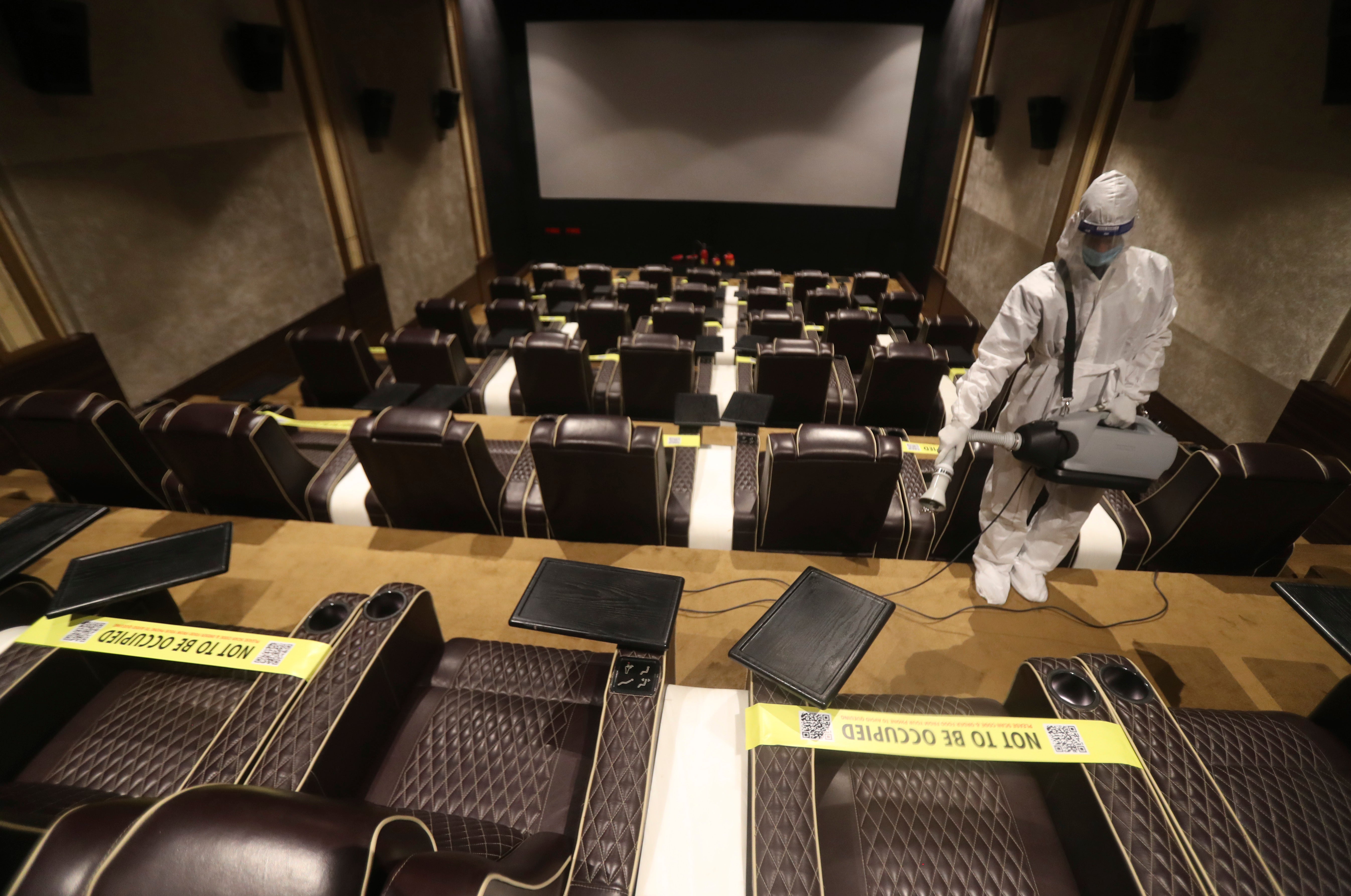Asia Today: New Zealand imposes new mask rules as precaution
Starting Thursday, New Zealanders will be legally required to wear masks on public transport in Auckland and on planes nationwide

Your support helps us to tell the story
From reproductive rights to climate change to Big Tech, The Independent is on the ground when the story is developing. Whether it's investigating the financials of Elon Musk's pro-Trump PAC or producing our latest documentary, 'The A Word', which shines a light on the American women fighting for reproductive rights, we know how important it is to parse out the facts from the messaging.
At such a critical moment in US history, we need reporters on the ground. Your donation allows us to keep sending journalists to speak to both sides of the story.
The Independent is trusted by Americans across the entire political spectrum. And unlike many other quality news outlets, we choose not to lock Americans out of our reporting and analysis with paywalls. We believe quality journalism should be available to everyone, paid for by those who can afford it.
Your support makes all the difference.Starting Thursday, New Zealanders will be legally required to wear masks on public transport in Auckland and on planes nationwide.
Prime Minister Jacinda Ardern and Virus Response Minister Chris Hipkins announced the new rules on Monday after meeting with senior lawmakers.
The country has been largely successful in eliminating the virus but has experienced several small outbreaks in Auckland, the latest one after a military worker at a hotel where travelers returning from abroad are being quarantined got infected.
Ardern said the new rules were precautionary.
“New Zealand remains in a unique position globally. We have economic and personal freedoms that few other countries enjoy,” she said. “But these freedoms are under increased threat as COVID surges in the world around us.”
The rules don’t apply to children under age 12 or passengers taking taxis or Ubers, although their drivers will be required to wear masks.
In other developments in the Asia-Pacific region:
— India has registered 30,548 new coronaviruses cases, the fewest in the last four months but amid growing concerns about the latest surge in the capital, New Delhi. India has now recorded a total of 8.84 million cases, second behind the U.S. The Health Ministry said Monday that the country was showing a trend of declining average daily cases over the last two months. The ministry also reported 435 new fatalities, raising the death toll to 130,070. India’s daily cases have seen a steady decline since the middle of September, but New Delhi is now recording more new infections than any other state. Experts have attributed the surge to the festival season, dangerous pollution levels and a dip in temperatures.
— An outbreak of the coronavirus in the Australian city of Adelaide has grown by three cases to a total of 17 and prompted the closure of two schools and a fast-food restaurant. Health authorities say they believe a worker at a hotel where people arriving from abroad are being quarantined caught the virus and then infected other family members. Authorities are scrambling to contain the outbreak and have opened a pop-up testing station and are tracing contacts of those infected. Meanwhile, authorities in the state of Victoria notched a 17th straight day without any new cases on Monday, after they battled a major outbreak in Melbourne earlier this year.
— South Korea’s daily coronavirus tally has stayed above 200 for a third consecutive day, as authorities consider raising the country’s social distancing rules. The 223 additional cases recorded Monday by the Korea Disease Control and Prevention Agency raised the country’s total to 28,769, including 494 deaths. The agency says 193 of them are locally transmitted cases while the rest was associated with international arrivals. South Korea has seen a steady increase in cases since easing social distancing guidelines last month.